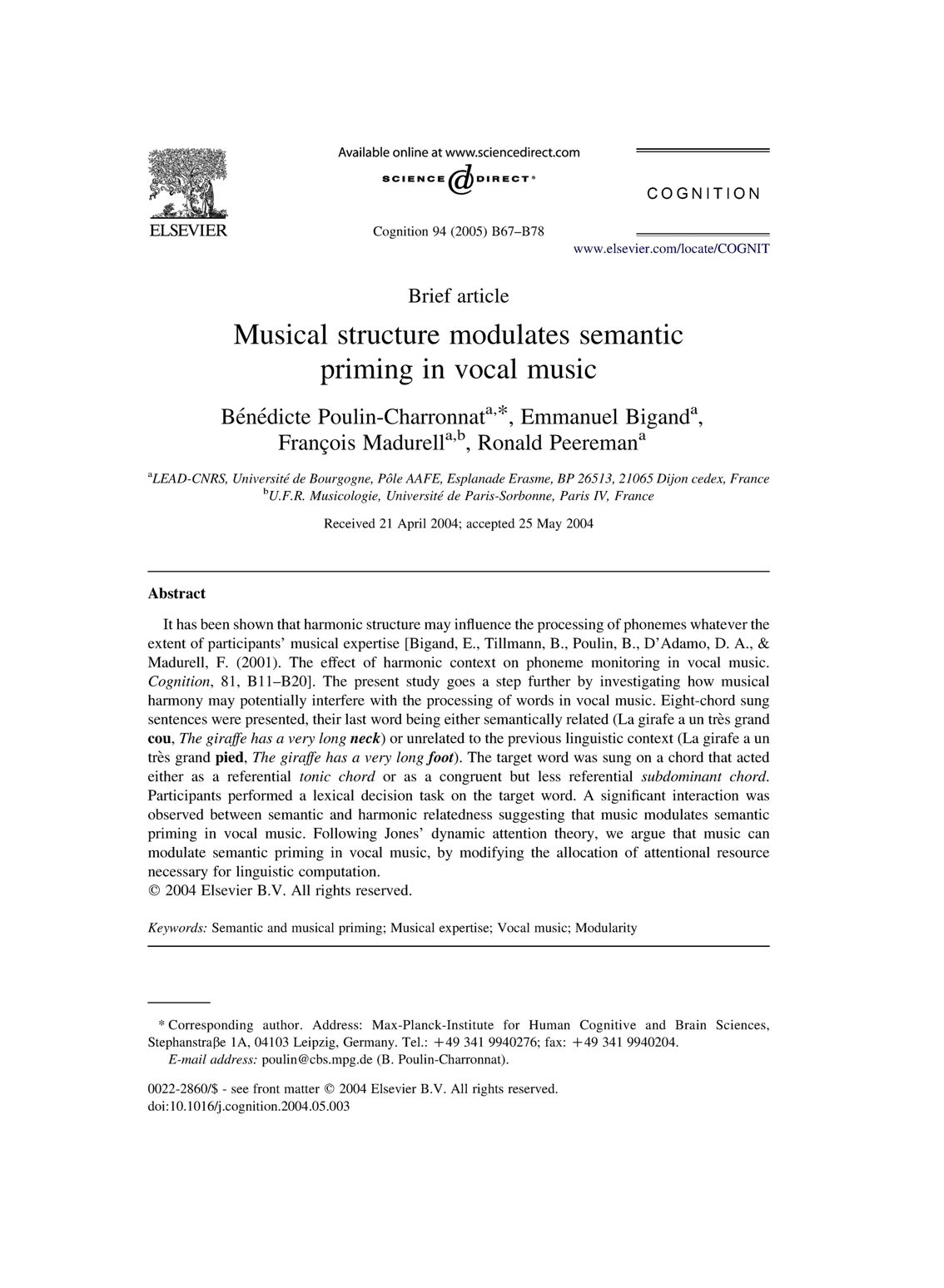It has been shown that harmonic structure may influence the processing of phonemes whatever the extent of participants’ musical expertise [Bigand, E., Tillmann, B., Poulin, B., D’Adamo, D. A., & Madurell, F. (2001). The effect of harmonic context on phoneme monitoring in vocal music. Cognition, 81, B11-B20]. The present study goes a step further by investigating how musical harmony may potentially interfere with the processing of words in vocal music. Eight-chord sung sentences were presented, their last word being either semantically related (La girafe a un tres grand cou, The giraffe has a very long neck) or unrelated to the previous linguistic context (La girafe a un tres rand pied, The giraffe has a very long foot). The target word was sung on a chord that acted either as a referential tonic chord or as a congruent but less referential subdominant chord. Participants performed a lexical decision task on the target word. A significant interaction was observed between semantic and harmonic relatedness suggesting that music modulates semantic priming in vocal music. Following Jones’ dynamic attention theory, we argue that music can modulate semantic priming in vocal music, by modifying the allocation of attentional resource necessary for linguistic computation.
Musical structure modulates semantic priming in vocal music
